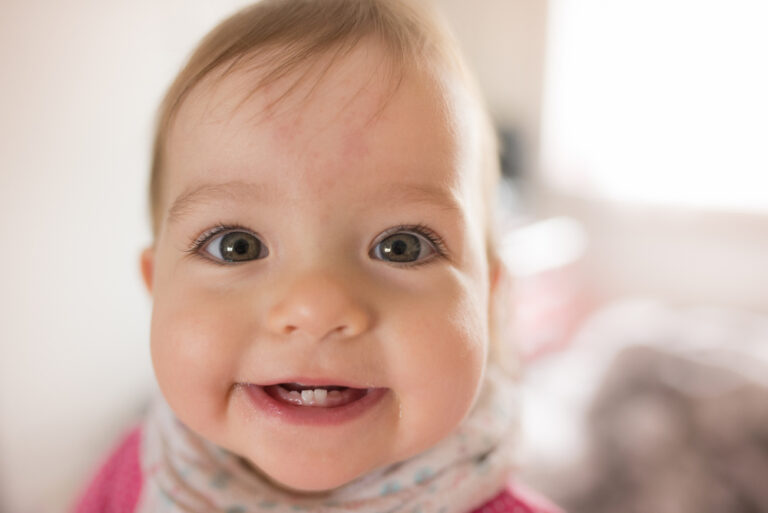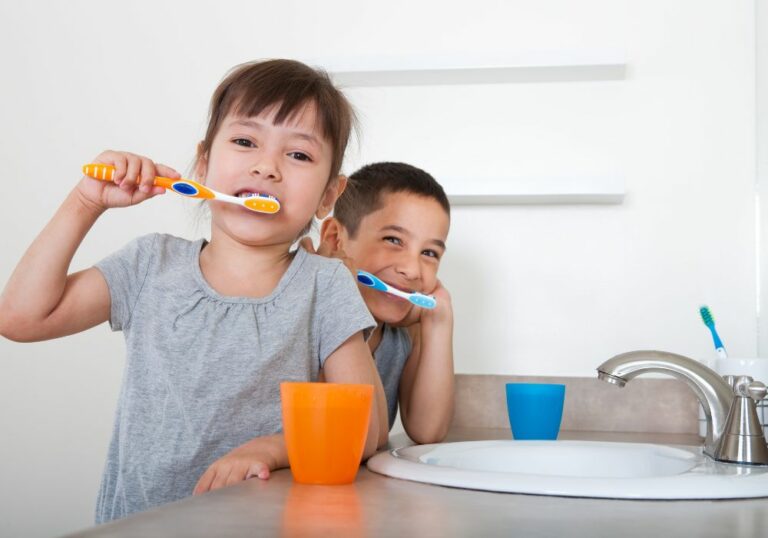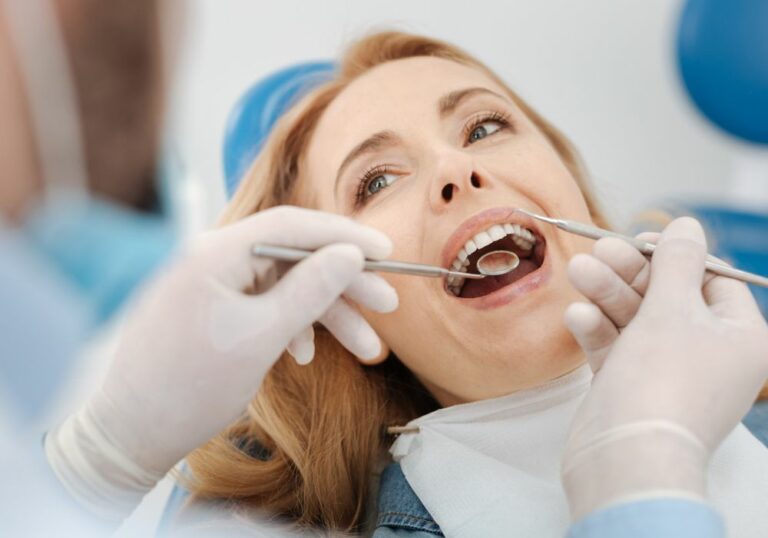Do you have a cat or are you thinking about getting one? If so, you may be wondering if cat teeth fall out. The answer is yes, but it depends on the age of your cat. Like humans and all other domestic animals, cats go through two sets of teeth throughout their lives: kitten teeth and adult cat teeth.
Kitten teeth, also known as deciduous teeth or baby teeth, start to come in when a kitten is around two to three weeks old. These teeth are smaller and sharper than adult cat teeth and are designed for nursing and eating soft food. Between three to six months of age, kittens start to lose their baby teeth and their adult teeth begin to come in. The process of losing baby teeth and growing adult teeth usually finishes by the time a kitten is seven months old.
Understanding Cat Teeth
As a cat owner, it’s essential to understand the dental health of your furry friend. Cat teeth are unique and different from human teeth. They have 30 teeth, while humans have 32 teeth.
Cats have four types of teeth, including incisors, canines, premolars, and molars. Each type of tooth has a specific function. For example, incisors are used for biting and grooming, while canines are used for tearing and holding prey. Premolars and molars are used for shearing and grinding food.
Like humans, cats can suffer from dental problems such as plaque, tartar, gingivitis, and periodontal disease. Regular dental checkups and cleaning can help prevent these problems.
It’s also important to note that cat teeth fall out naturally. Kittens have baby teeth that fall out to make room for adult teeth. However, if adult teeth fall out, it could be a sign of a dental problem.
If you notice your cat has bad breath, drooling, or difficulty eating, it’s essential to take them to the vet for a dental checkup. Your vet can detect dental problems early and provide treatment to prevent tooth loss.
In summary, understanding cat teeth is crucial for maintaining your cat’s dental health. Regular dental checkups and cleaning, along with proper dental care, can prevent dental problems and tooth loss.
Do Cat Teeth Fall Out?
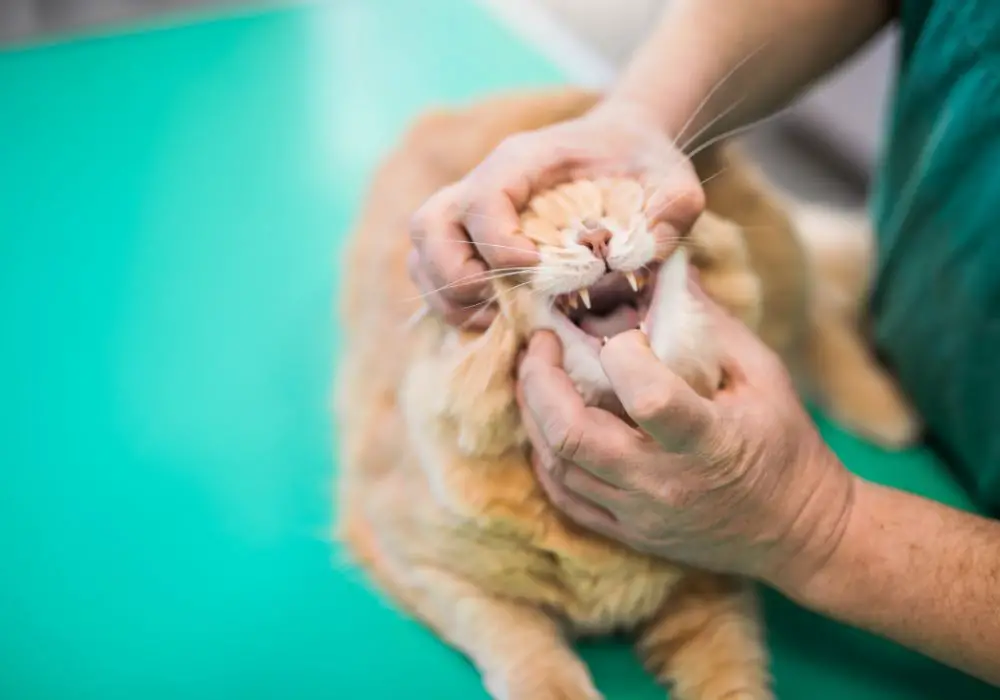
Cats, like humans, go through two sets of teeth throughout their lives – kitten teeth and adult cat teeth. While it may be worrying to see your cat’s teeth falling out, it’s important to understand that it can be a normal part of the natural process or a sign of an underlying health condition. In this section, we will discuss the reasons why cat teeth fall out and what you should look out for.
Kitten Teeth
Kitten teeth, also known as deciduous teeth or baby teeth, start to emerge when a kitten is around three weeks old. These teeth are small and sharp, and there are a total of 26 kitten teeth. As kittens grow, their baby teeth start to fall out, and adult teeth take their place. This process usually starts at around three months old and is complete by six months old.
It’s common to find kitten teeth around the house during this time, and you may notice your kitten chewing on things more often. This is because the discomfort of teething can be relieved by chewing. If you notice your kitten’s teeth falling out before six months of age, it’s usually not a cause for concern.
Adult Cat Teeth
Adult cat teeth, also known as permanent teeth, are larger and stronger than kitten teeth. There are a total of 30 adult cat teeth, and they are meant to last a lifetime. However, just like with humans, cats can experience tooth loss due to various reasons.
One of the most common reasons for adult cat teeth falling out is poor dental hygiene. If plaque and tartar build-up on a cat’s teeth, it can lead to gum disease, which can cause teeth to become loose and fall out. Another reason for tooth loss can be physical trauma, such as a fall or a hit to the mouth.
If you notice your adult cat’s teeth falling out, it’s important to visit a veterinarian to determine the underlying cause. They may recommend a dental cleaning or other treatments to prevent further tooth loss.
In conclusion, while it’s normal for kitten teeth to fall out during the teething process, adult cat teeth falling out can be a sign of an underlying health condition. It’s important to keep up with your cat’s dental hygiene and visit a veterinarian if you notice any tooth loss.
Reasons for Cat Teeth Falling Out
If you notice your cat losing teeth, it may be a sign of an underlying issue. Here are some reasons why cat teeth may fall out:
Dental Disease
Dental disease is a common cause of tooth loss in cats. When plaque and tartar build up on the teeth, it can lead to gingivitis and periodontal disease. These conditions can cause the gums to recede, exposing the tooth roots and leading to tooth loss.
To prevent dental disease, it is important to brush your cat’s teeth regularly and take them for regular dental checkups. Your vet may also recommend dental cleanings or treatments to prevent or manage dental disease.
Injury
Injuries to the mouth or teeth can also cause tooth loss in cats. This can happen if your cat falls or gets into a fight with another animal. Trauma to the mouth can cause teeth to become loose or even fall out.
If your cat has experienced an injury to their mouth or teeth, it is important to take them to the vet for an examination. Your vet may recommend treatment to prevent infection or further damage.
Age Related Issues
As cats age, they may experience age-related dental issues that can lead to tooth loss. This can include conditions such as resorption, where the body reabsorbs the tooth root, or tooth decay.
Regular dental checkups and cleanings can help catch age-related dental issues early and prevent tooth loss. Your vet may also recommend dietary changes or supplements to support your cat’s dental health as they age.
Overall, if you notice your cat losing teeth, it is important to take them to the vet for an examination. Your vet can help determine the underlying cause of the tooth loss and recommend appropriate treatment.
Symptoms of Cat Teeth Problems
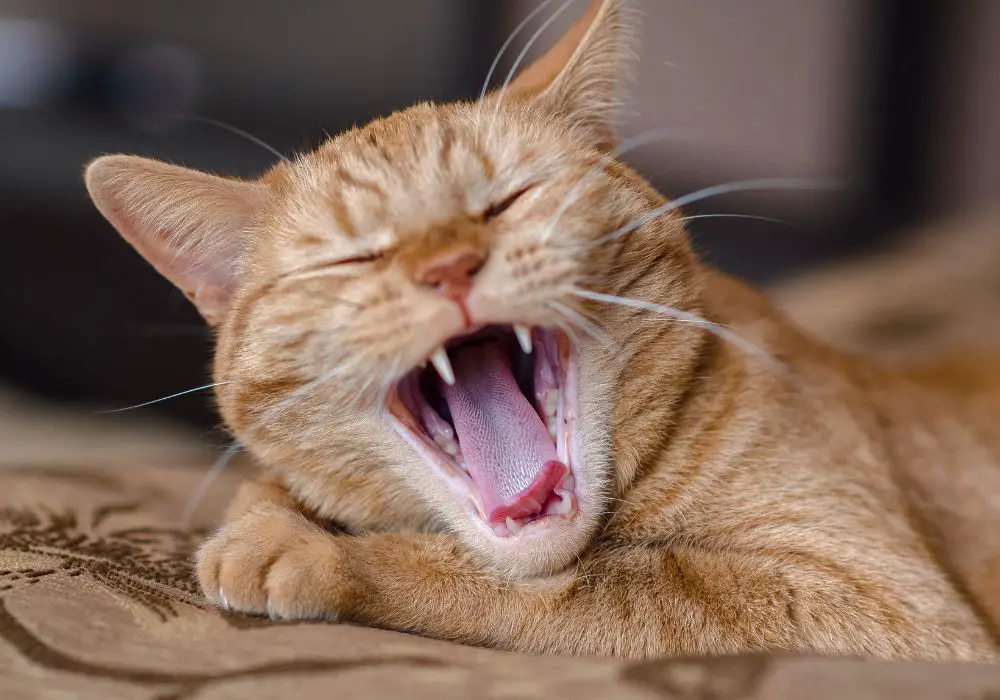
If your cat is experiencing dental problems, there are a few symptoms you should look out for. Here are some common signs that your cat may be having issues with their teeth:
Changes in Eating Habits
One of the most noticeable symptoms of dental problems in cats is a change in their eating habits. If your cat is avoiding certain types of food, chewing on one side of their mouth, or refusing to eat altogether, it may be a sign that they are experiencing dental pain.
Bad Breath
Bad breath is another common symptom of dental problems in cats. If your cat’s breath smells foul, it may be a sign that they have an infection or other dental issue that needs to be addressed.
Visible Signs
There are also a few visible signs that can indicate dental problems in cats. These include:
- Yellow or gray teeth
- Inflamed or bleeding gums
- Drooling
- Pawing at the mouth
If you notice any of these symptoms in your cat, it’s important to take them to the vet as soon as possible. Dental problems can be painful and even lead to more serious health issues if left untreated.
What to Do If Your Cat’s Teeth Fall Out?
If you notice that your cat’s teeth are falling out, it can be a cause for concern. Here are some steps you can take to help your cat:
Veterinary Care
The first thing you should do is take your cat to the veterinarian. The vet will be able to diagnose the cause of the tooth loss and determine the best course of treatment. They may recommend X-rays or other tests to get a better look at your cat’s teeth and gums.
If your cat’s tooth fell out due to trauma, the vet may recommend pain medication or antibiotics to prevent infection. If the tooth loss is due to advanced periodontal disease, the vet may recommend a dental cleaning or extraction.
Home Care
After your cat has received veterinary care, there are some things you can do at home to help them recover:
- Soft food: Offer your cat soft food to eat while their mouth is healing. This will be easier on their teeth and gums than crunchy kibble.
- Dental hygiene: Brush your cat’s teeth regularly to prevent further tooth loss. Use a toothbrush and toothpaste designed specifically for cats.
- Dental treats: Offer your cat dental treats that can help clean their teeth and freshen their breath. Look for treats that are designed to promote dental health.
- Regular check-ups: Take your cat to the vet for regular check-ups to monitor their dental health. The vet can catch any issues early on and prevent further tooth loss.
By taking these steps, you can help your cat recover from tooth loss and prevent further dental issues in the future.
Preventing Tooth Loss in Cats
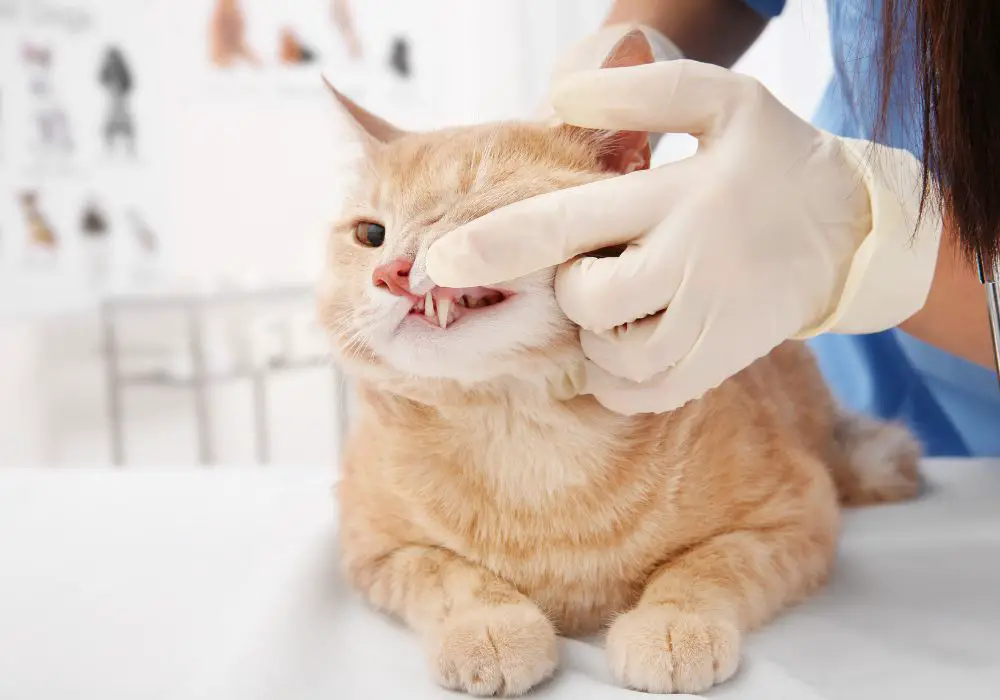
Regular dental check-ups, proper nutrition, and oral hygiene practices are essential for preventing tooth loss in cats.
Regular Dental Check-ups
Regular dental check-ups are crucial for maintaining your cat’s oral health. Your veterinarian can identify and treat dental problems before they become severe. During a dental check-up, your veterinarian will examine your cat’s teeth, gums, and mouth for signs of dental disease, such as tartar buildup, gum inflammation, and tooth decay. They may also recommend professional dental cleaning to remove plaque and tartar from your cat’s teeth.
Proper Nutrition
Proper nutrition is vital for your cat’s overall health, including their dental health. Feeding your cat a balanced diet that meets their nutritional needs can help prevent tooth decay and gum disease. Dry food can help remove plaque from your cat’s teeth, but wet food can stick to their teeth and promote bacterial growth. Consult with your veterinarian to determine the best diet for your cat’s dental health.
Oral Hygiene Practices
Oral hygiene practices are essential for preventing tooth loss in cats. Brushing your cat’s teeth regularly can help remove plaque and prevent gum disease. Use a toothbrush and toothpaste specifically designed for cats, and start by introducing toothbrushing gradually. Other oral hygiene practices include providing dental treats and toys, using water additives, and regular dental check-ups.
By following these preventive measures, you can help ensure your cat’s dental health and prevent tooth loss.
Frequently Asked Questions
Can cats lose their teeth as they age?
Yes, cats can lose their teeth as they age. Just like humans, cats can suffer from dental problems that can lead to tooth loss. However, not all cats will lose their teeth as they age.
What age do cats typically lose their teeth?
Cats typically start losing their baby teeth at around three to four months of age. By the time they are six months old, their adult teeth should have fully grown in. However, dental problems can occur at any age, causing cats to lose teeth.
What should I do if my cat loses a tooth?
If your cat loses a tooth, you should take them to the vet as soon as possible. Losing a tooth can be a sign of dental problems, and your vet can determine the cause and provide appropriate treatment.
Is it normal for cats to lose their teeth?
While it is not uncommon for cats to lose their teeth, it is not considered normal. Tooth loss can be a sign of dental disease, trauma, or other health issues. It is important to have your cat’s teeth checked regularly by a vet to prevent tooth loss and other dental problems.
How can I tell if my cat’s tooth is loose?
If your cat’s tooth is loose, you may notice that they are having difficulty eating or that they are drooling more than usual. You may also be able to see that the tooth is loose or missing.
Are there any health concerns associated with cats losing their teeth?
Yes, there are several health concerns associated with cats losing their teeth. Tooth loss can lead to difficulty eating, gum disease, and even infections that can spread to other parts of the body. It is important to have your cat’s dental health checked regularly by a vet to prevent these health issues.

